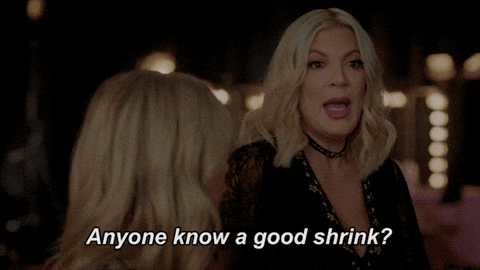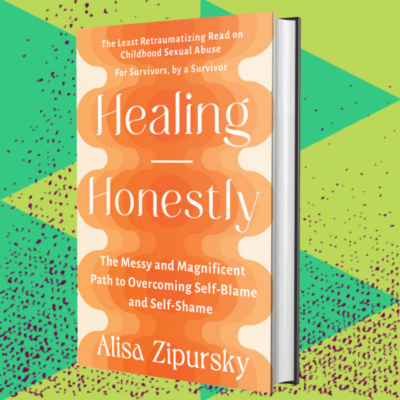A note about this story: there are a lot of links to medical articles/journals for citation purposes, but please do not feel a need to click on them. Many contain information that we may find pathologizing or make us feel like something scientific to be studied, and not like actual people. I’ve tried to include the parts that feel relevant below so that if you want to avoid those articles please feel free to! The most useful article I found was this one from The Guardian which includes mention of suicide and sexual assault but no descriptions of it. The article presents some interesting and destigmatizing insights while simultaneously providing some information that could be stigmatizing about it too. So, please choose whether or not to read it with mindfulness about your own wellbeing.
What happens when CSA survivors are diagnosed with borderline personality disorder instead of post-traumatic stress disorder (PTSD)
Let’s talk about the diagnosis of borderline personality disorder (BPD) and experiencing childhood sexual abuse (CSA). Personally, I know so many survivors who have received the diagnosis of BPD, so I wasn’t surprised to learn that studies show that sexual abuse is actually a risk factor for BPD.
We will get into what the diagnosis is, whether it’s a useful diagnosis, and why it shows up in so many CSA survivors. But before we get into all that jazz, I first have to say:
If you are a survivor and have received the diagnosis of BPD please know you aren’t alone and are in the wonderful company of some truly amazing, brilliant, funny, loving people! Diagnoses should empower us and provide us access to the care that we need, and if they feel otherwise then that is the fault of cultural and medical stigmas, not because there is anything wrong with us!

What is borderline personality disorder? (BPD)
BPD is a mental health diagnosis that the Mayo Clinic describes as, “A pattern of unstable, intense relationships, as well as impulsiveness and an unhealthy way of seeing themselves. People with borderline personality disorder have a strong fear of abandonment or being left alone…the fear of being abandoned often leads to mood swings and anger.”
Overwhelmingly, people diagnosed with BPD have experienced traumatic childhoods. Up to 80% of people diagnosed with BPD experienced some form of emotional neglect, physical or sexual abuse while kids. It is believed that it is not a condition someone is born with, but rather develop over time as a result of childhood trauma.
Personally, I know BPD is super common amongst us CSA survivors. I can think of many CSA survivors I know who’ve been diagnosed with it. If you’ve received this diagnosis, please know that there are so many people out there whose brains have responded the same way to a trauma they never ever should’ve had to survive and there’s absolutely nothing to be ashamed of!
Borderline personality disorder (BPD) is a gendered diagnosis
It wasn’t until I read this useful article “Is This Actually PTSD? Clinicians divided over redefining borderline personality disorder” in The Guardian that I realized all of the CSA survivors I know diagnosed with BPD are women. And to be clear, I know a lot of survivors who are men. In fact, over half of HealingHonestly.com’s readership are men.
In The Guardian article, we hear from Dr. Karen Williams, a psychiatrist who runs New South Wales’s Ramsay Clinic Thirroul – Australia’s first women-only trauma hospital. Dr. Williams believes BPD, “is a gendered diagnosis that is given to women who have got histories of abuse, whereas when we see a man come back from a traumatic event, we [say] he’s got PTSD [post-traumatic stress disorder]”.
She explains, ‘There is no symptom that a borderline personality disordered person has that a PTSD patient doesn’t also have.’”
Since BPD was introduced as a diagnosis in the 1980’s it’s been viewed as a women-specific disorder, and 75% of people diagnosed with it are women. But there’s some new-ish research that suggests that maybe BPD is as prevalent in men as women, even though men aren’t diagnosed with it at nearly the same rate as women. The short of it is that BPD is considered a mental health disorder for women intended to label the way their brains have responded to trauma, and I think that’s something that’s super important for us to think critically about.
The diagnosis of BPD reminds me of the now defunct diagnosis of hysteria, a diagnosis historically given to women who were seen as “disagreeable” and difficult. When Freud studied hysteria he learned that the women diagnosed with it had experienced childhood sexual trauma. They are both mental health diagnoses only given to women (red flag) who experienced trauma, yet the treatment does not involve treating the trauma (red flag, again).

Dr. Judith Haran, a retired psychiatrist and longtime HealingHonestly.com reader, shared the following with me: “In my opinion, both the hysteria diagnosis and the borderline one are just more evidence of male misogyny, the extent of which really cannot be exaggerated, especially in the medical profession.”
I wanted to share this with you all as some real food for thought about the political nature of mental healthcare, the treatment of childhood sexual violence survivors and who we deem to be capable and worthy of healing.
It matters whether we are diagnosed with C-PTSD or BPD because they lead to different treatments for us
We learned that BPD and complex post-traumatic stress disorder (C-PTSD) can be super similar and common in CSA survivors, yet generally speaking a lot of women get diagnosed with BPD and a lot of men get diagnosed with PTSD.
It really matters how these conditions get diagnosed because it can determine what treatments are available to us as well as what kind of stigmas we have to navigate.
The Guardian article states, “Despite there being no clinical difference between PTSD and BPD, Williams says the clinical response varies markedly. PTSD, particularly among veterans, is treated with sympathy, while women with the diagnosis of BDP are considered ‘difficult’.”

I know women who’ve received the diagnosis of BPD that have therapists say they don’t work with patients with it and even heard harmful messages implying that there isn’t effective treatment (this is bullshit, for the record). Yet, I’ve never known anyone with a PTSD diagnosis, myself included, who’ve been told by a therapist they don’t work with people with that diagnosis or had anyone imply that treatments don’t help.
More from The Guardian:
“The discussion about using BPD or complex post-traumatic stress disorder is about more than words – according to Kulkarni, it changes the whole direction and focus for treatment. Historically, treatment for BPD has relied upon antidepressants to treat low mood and antipsychotics for paranoid thinking, but it has not addressed underlying cognitive symptoms such as difficulty managing emotions, a disturbed sense of identity, disturbed relationships and impulsivity. Those symptoms tend to be treated with psychosocial approaches, such as dialectical behaviour therapy, mentalisation-based treatment and high quality care.”
Diagnoses should help us, not hurt us
Receiving a diagnosis should be validating. When I received the diagnosis of post-traumatic stress disorder (PTSD), I felt relief to know there was a name for what I was experiencing, relief that my pain was being taken seriously and seen as “legitimate,” and hope knowing that there were options for treatment that could help me feel better over time.
Some of the women I know who’ve received the diagnosis of BPD have had a wildly different experience. The diagnosis is not associated with treatments and with the possibility of improvement, some old school (code for: shitty) therapists don’t even see it as treatable. For the record, this is patently untrue and total bullshit.

The Mayo Clinic website offers, ‘If you have borderline personality disorder, know that many people with this condition get better with treatment. They can learn to live stabler, more-fulfilling lives.”
In addition to how the BPD diagnosis impacts treatments, the condition itself is also stigmatized. In popular culture, people throw around the term “borderline” as a synonym for someone difficult or a stand-in for calling someone “crazy.” It is very understandable that someone may experience a lot of hurt and grief at receiving the diagnosis of BPD.
When I originally wrote about BPD in survivors in my Friday newsletter (cough cough, you should sign up for it, it’s delightful, cough cough), Dr. Haran wrote in and shared:
“I’m a retired psychiatrist. I can tell you I have NEVER seen the diagnosis of BPD used in anything BUT a pejorative, hateful manner. I myself did not use it after my residency, as I could see it was a useless diagnosis.”
Whether BPD remains a separate diagnosis or gets rolled into the PTSD diagnosis, we need a culture where every survivor knows that nothing is wrong with them, but rather something wrong happened to them, and each of us has access to all the help we so richly deserve.
The big idea about child sexual abuse survivors and borderline personality disorder
If you are a childhood sexual abuse survivor who has been diagnosed with BPD, you are in the company of some extraordinary people who live full, vibrant, messy, beautiful lives. No matter how you may feel about the diagnosis, none of us are fated to a certain shitty kind of future. We can have the love and meaningful relationships we crave.
Those of us survivors diagnosed with BPD, those of us diagnosed with C-PTSD, and everyone else all have the same work ahead: developing healthy-ish coping strategies; learning about our needs and how to honor other people’s needs; figuring out how to call bullshit on the self-blame and shame we feel; and understanding that what happened to us was wrong but we are not. We are all deserving of love, support and healing resources we need.

